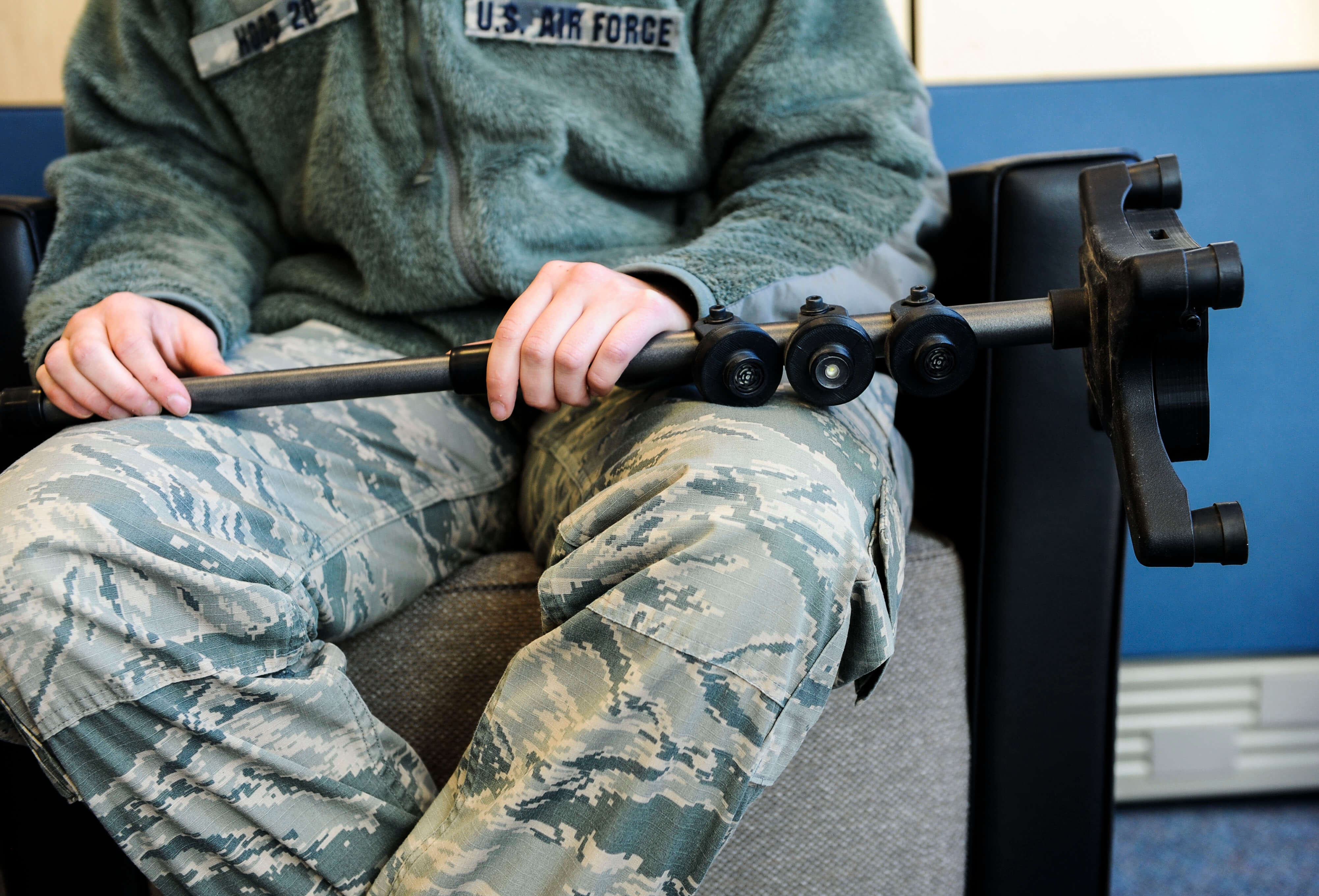Academy cadet patents sensors on “Freedom Cane,” an anti-fall device

By Jennifer Spradlin, March 8, 2019
U.S. AIR FORCE ACADEMY, Colo. — The Population Reference Bureau estimates the number of Americans aged 65 and older will more than double by 2060, straining healthcare resources while creating a growing market for electronic healthcare aides.
Cadet 2nd Class Mary Hood started her journey to develop a technologically advanced anti-fall device, or “Freedom Cane,” while preparing for her high school science fair in 2015. A guest speaker at the fair left the students with a bit of engineering advice: help one, help many. If the students could find found a solution to help one person in their lives, the same solution might help others.
“My grandma was one person in my life that I thought could use some help,” Hood said. “I felt like the senior citizen population had really been left behind by technology.”
With her grandmother in mind, Hood designed the cane to be user friendly and researched features that would benefit her target clients.
She added a flashlight because many older people fall while trying to use the bathroom in the middle of the night and installed a heart rate monitor into the handle. Four sensors on the bottom of the cane respond to pressure and show a healthcare provider or relative how often the cane is used via an app. If the cane tips over, it reports a potential fall.
Hood won the Colorado State Science Fair in 2015 and entered that year’s International Science Fair. She took prize money from her state-level win to begin patent research and develop a practical prototype with the aid of a mechanical engineer.
Last month, Hood was finally awarded a patent for her sensor technology. She reengaged with the project after taking a mechatronic course here to improve her computer coding skills.
“The flexibility to do independent research here and access to the incredible mechanical engineering lab has really allowed me to push the project forward,” she said.
The native of Alamosa, Colorado, grew up wanting to attend the Academy. She recently completed her application for the Rhodes scholarship and seeks to earn master’s degrees in engineering and practical ethics in technology.
“Mary has tremendous intellectual curiosity,” said Lt. Col. Michael Anderson, an associate professor in the Department of Engineering and Mechanics. “She wants to understand how things work and when something doesn’t work, she won’t give up until she’s fixed it.”
Hood is currently working to improve how the freedom cane is powered. It runs on a 9-volt battery, but her goal is to create a rechargeable stand. She’d also like to add to the functionality of the app by adding a heart rate log.